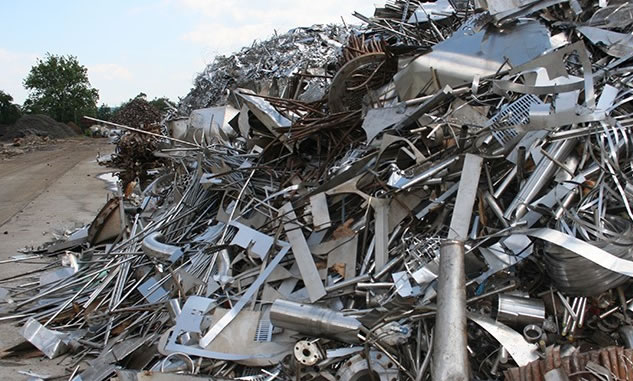

AUG 02, 2023
You may wonder about their composition and characteristics when encountering different kinds of metal in everyday life or during scrap metal recycling activities. Understanding metal properties is vitally important - from understanding usability issues to finding the appropriate buyer/company for recycling purposes. This article by RCM Recycling introduces four tests that can assist in discovering metal properties: spark tests, hardness tests, magnet tests, and surface examination tests. All are simple yet efficient tests that require no special equipment - let's dive right in and discover all about various metals!
A spark test can quickly identify various metals by studying the sparks produced when struck against hard surfaces. For this method to work effectively, all that's necessary to conduct it is some sample metal and a grinding wheel - gently pressing your metal sample against this hard surface will send sparks off like fireworks and provide insights into its composition based on shape, color, and length of its sparks.
Sparks with short and reddish lengths, such as those in mild steel, indicate high carbon content. If you see golden forked sparks instead, these could indicate copper or brass alloy.
Conducting the hardness test on metals is a simple way of measuring their strength and durability without needing expensive equipment like microscopes. A file will do nicely; simply place your sample metal on an even, stable surface and file away at it with slow strokes until its hardness can be measured by how easily your file cuts into its surface - that hardness indicator should tell the tale!
If the file cuts smoothly through metal such as aluminum but leaves shallow marks when used against harder materials like steel or iron, it might be a soft metal such as aluminum.
To easily and rapidly differentiate ferrous from non-ferrous metals, perform a magnet test with each piece you wish to examine. Holding the magnet against it and positioning the metal next to it should reveal which are magnetic. If any are, they'll attract it instantly!
Ferrous metals such as iron and steel will adhere to a magnet, while non-ferrous ones like aluminum, copper, and brass do not show any attraction for them. Performing such tests efficiently helps recyclers sort metal efficiently for recycling projects.
Surface examination tests involve carefully inspecting and studying a metal's appearance and texture, paying particular attention to distinguishing features such as color, texture, and corrosion that provide insight into its properties.
Copper typically displays an earthy-brown hue, while brass has more of a yellowish-gold tint. Furthermore, looking out for signs of corrosion or rust indicates whether iron-based metals might be susceptible to oxidization - both signs that an individual metal might require further inspection before use.
At RCM Recycling, we take great pride in being an esteemed scrap metal buyer with years of experience serving all your needs. With comprehensive solutions tailored specifically to you and your scrap metal requirements in mind. As a scrap metal company, we provide efficient and eco-friendly metal recycling services, helping create a more sustainable future. Whether for personal or professional purposes - be it scrap metal disposal, buying surplus materials from businesses, or the disposal of hazardous material waste - our expertise and resources allow us to assist. At RCM Recycling, customer satisfaction, fair pricing, and sustainable recycling practices are of top priority - making us your go-to choice for all your scrap metal recycling needs. Let us unlock its potential value while simultaneously playing our part in promoting environmental stewardship!